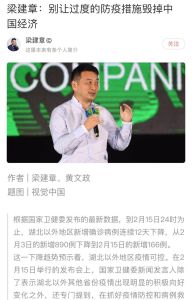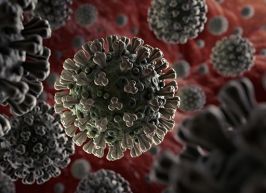Únase a getAbstract para acceder al resumen.

Únase a getAbstract para acceder al resumen.
Liang Jianzhang
Chinese Businessman and Economist Argues Against Strict Lockdown Measures for Fear of Damage to China’s Economy
Don’t let arbitrary local quarantine guidelines prevent China’s labor force from returning to work.
Huxiu, 2020
¿De qué se trata?
You can only restrict people’s movement to combat COVID-19 for so long.
Recommendation
COVID-19, the illness caused by a novel coronavirus first discovered in Wuhan, China, has now become a pandemic affecting countries around the globe. As many countries follow in China’s footsteps with city lockdowns and quarantines, taking a look at China’s experience over the past couple of months may prepare you for what might happen. In this article, economics professor and demography expert Liang Jianzhang voices concern for the heavy toll that countrywide quarantines and restrictions on movement are having on the economy. He advises a more balanced, specific and data-driven approach.
Summary
About the Author
James Jianzhang Liang is the chairman, former CEO, and co-founder of Ctrip, one of China’s largest providers of travel services. He earned a PhD in economics from Stanford University and is currently a research professor of economics at Peking University’s Guanghua School of Management.
















Comment on this summary